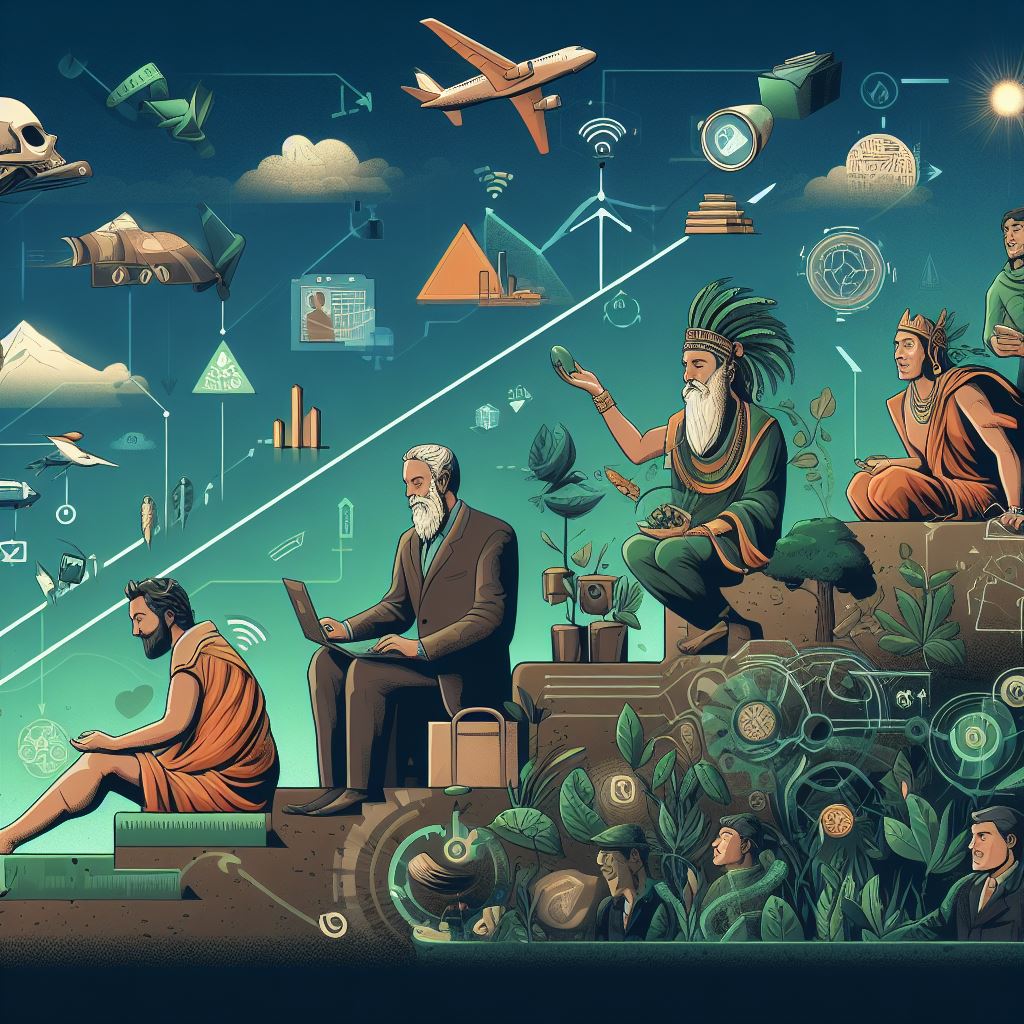
The New Success Paradigm: What It Means in the 21st Century
A Historical Perspective: Defining Success Over the Centuries
To truly understand the "evolving measures of success" in the present, one must first glance back at history. Historically, success was often equated with:
- Acquiring land and property: In medieval times, the accumulation of land was a clear sign of prosperity.
- Marriage and lineage: For many cultures, a successful marriage and producing heirs was paramount.
- Wealth: Since ancient civilizations, the accumulation of riches has been a consistent measure of success.
- Professional prestige: Think of the reverence for scholars in ancient China or knights in medieval Europe.
However, as times have evolved, so has our perception of what it means to be successful.
The Modern Era: How Technology and Globalization Impact Our Definition of Success
The 21st century has seen radical shifts, primarily due to technological advancements and globalization. The digital age has birthed a new paradigm, reshaping our benchmarks for achievement and altering our paths to success.
-
Digital Entrepreneurship: With platforms like YouTube, Instagram, and TikTok, many have found success outside of traditional paths, building massive audiences and, subsequently, profitable enterprises.
-
Decentralized Success Metrics: Traditional centralized institutions no longer hold a monopoly on success. Today, a startup in Bangalore can compete with Silicon Valley giants, and an artist in Senegal can captivate a global audience.
-
Work-Life Integration: Remote work, facilitated by technology, has blurred the lines between personal and professional realms. This has led to an increased focus on balancing personal and professional success.
Real-World Examples of Success in the Digital Age
To further elucidate the concept, consider the following:
-
Elon Musk: Redefining success in multiple industries from electric vehicles with Tesla to space travel with SpaceX.
-
Malala Yousafzai: Using her global platform to advocate for women's education and rights, showcasing success in activism.
-
Indie Game Developers: Many indie game creators, using platforms like Steam, have achieved commercial and critical success, rivaling big game studios.
Defining Success in the 21st Century: Societal and Individual Measures
In our modern era, success is multifaceted. It's a blend of personal happiness, societal contribution, and professional accomplishment. Here's a breakdown:
- Societal Measures of Success:
- Economic stability
- Social influence or recognition
- Making a societal impact or leaving a legacy
- Individual Measures of Success:
- Personal happiness and mental well-being
- Achieving set personal goals, be they financial, educational, or spiritual
- Building and maintaining meaningful relationships
Balancing Personal and Professional Success Today
Today's "success" isn't just about professional achievement. It's about finding harmony between one's personal and professional life. Case in point:
- Sundar Pichai: As the CEO of Google and Alphabet, he not only leads one of the world's most powerful tech companies but is also known for his emphasis on work-life balance, emphasizing its importance in numerous interviews.
Gazing Ahead: Potential Future Trends in Defining Success
The 21st-century success paradigm is still evolving. Anticipating the future, we might see:
-
Increasing Emphasis on Mental Health: With rising awareness, success might also mean maintaining good mental health.
-
Eco-conscious Success: As environmental concerns intensify, successful enterprises will be those that prioritize sustainability.
-
Decentralized Work Models: The very definition of a "successful career" might change with more people opting for gig economy roles, valuing flexibility over traditional job stability.
Conclusion
The 21st-century paradigm of success is undeniably multifaceted. It is no longer just about personal accomplishment, triumph, or prosperity. Instead, it intertwines with societal values, personal well-being, and a harmonious balance between personal and professional realms.
"Success in the modern era is about adapting, growing, and finding purpose in an ever-changing world," as aptly put by renowned author and thought leader in personal development, John Maxwell.
References:
-
World Economic Forum reports on the impact of technology on societal success metrics.
-
McKinsey's research on how global corporations are redefining success criteria.
-
Harvard Business Review's in-depth articles on balancing personal and professional success in the 21st century.





